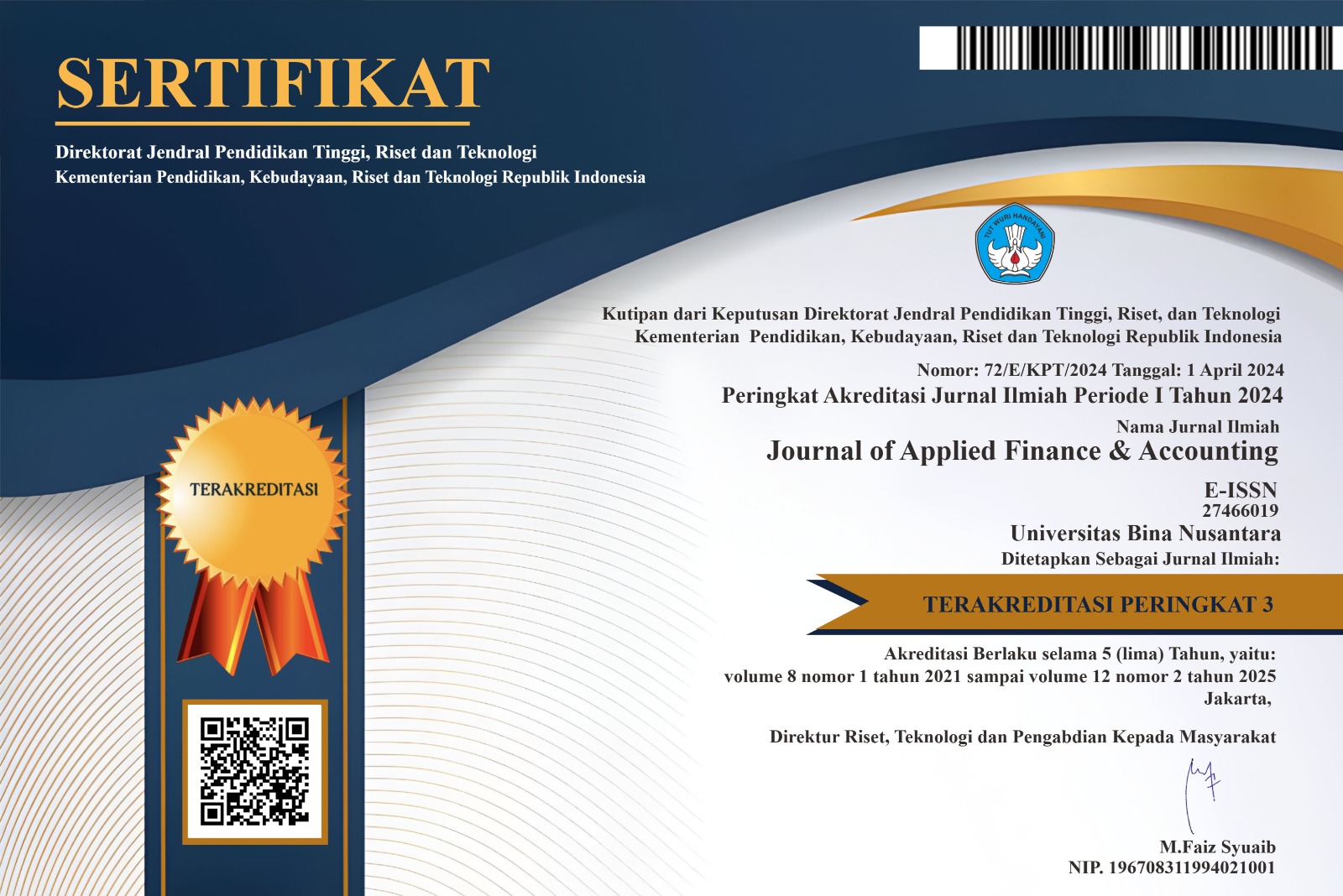THE BALANCED SCORECARD AS A STRATEGIC PERFORMANCE CONTROL TOOL AND ITS LINK TO THE ECONOMIC PROFIT MEASUREMENT- EVA AND MVA: A LITERATURE REVIEW
DOI:
https://doi.org/10.21512/jafa.v2i2.155Keywords:
BSC performance strategic control tool, economic value added, market value added.Abstract
The organizational performance measurement and control system is vital to sustain the business in all economic environments. Organization requires a control system that measures the performance strategically. This paper gathers the literature discussion of one such popular integrated strategic performance control system, the balanced scorecard approach (BSC). The discussion focuses on BSC approach on facilitating the implementation of organizational strategic and its link to the economic profit measures. Two popular economic profit measures, the Economic Value Added (EVA) and Market Value Added (MVA) are discussed in detail from various researchers point of view. The paper highlights the difference between these two measures and difference with the Return on Investment (ROI). The limitation of the economic profit measure is also highlighted in the discussion. As conclusion the link between the BSC strategic performance control tool and the economic profit measures are noted. This paper provides detailed discussions of both BSC strategic tool and economic profit measures based on literature review.Downloads
Published
Issue
Section
License
Authors who publish with this journal agree to the following terms:
Authors retain copyright and grant the journal right of first publication with the work simultaneously licensed under a Creative Commons Attribution License that allows others to share the work with an acknowledgement of the work's authorship and initial publication in this journal.
Authors are able to enter into separate, additional contractual arrangements for the non-exclusive distribution of the journal's published version of the work (e.g., post it to an institutional repository or publish it in a book), with an acknowledgement of its initial publication in this journal.
Authors are permitted and encouraged to post their work online (e.g., in institutional repositories or on their website) prior to and during the submission process, as it can lead to productive exchanges, as well as earlier and greater citation of published work (See The Effect of Open Access).




